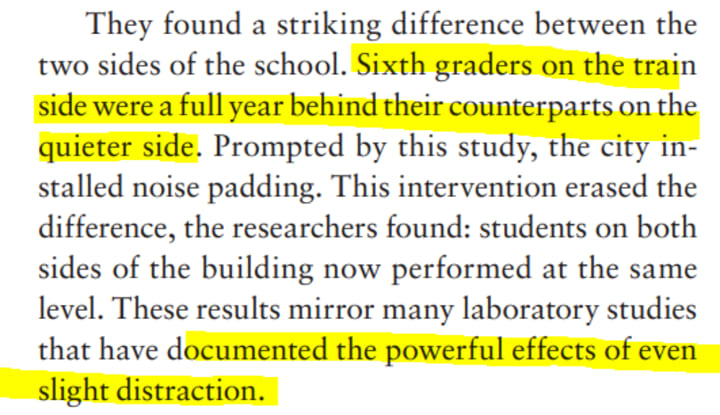
If you've ever been to college, I am sure you can remember the exam seasons of cramming everything and pulling all-nighters studying complex subjects and formulas. I can honestly say I don't remember much of the items learned now. As a middle class, my main day to day concern became how much money do I have in my bank account and would I be able to survive if my next paycheck didn't come in.
Homo Economicus

In economics, there is this model of a mythical being that can always be 100% rational and 100% focused on making effective financial decisions. In reality, we know this doesn't happen in the real world as humans are influenced by emotions, bias, and humans may not necessarily have all the information at hand or even be rational at times.
Mental Bandwidth
As humans, we have mental bandwidths. There is a limit to its bandwidth capacity.

Think of your mental bandwidth as the image above in boxes, once the information you take in reaches capacity, it limits your ability to focus on other things. You need to free up space so that you can make better informed and optimised decisions.
You then become more prone to the scarcity mindset:
- This reduces your overall ability to solve problems.
- This reduces your overall ability to retain information.
Hence you become more prone to impulses and making poor financial decisions. There is a study conducted by Sendhil Mullainathan and Eldar Shafir which supports this hypothesis in which it found people who tend to have some emotional or mental constraints tend to score lower in their IQ and financial decision making.
This is mostly due to mental bandwidth at capacity, which leads to a scarcity mindset. This cognitive limitation causes anxiety and poor decision made.


People with a scarcity mindset may tend to make short term decisions without considering the long term implications such as taking out payday loans, utilising credit cards without monitoring it, impulse buys and etc.
How do you remedy this?
Cut out things that are taking up mental space

This can be having a to-do list, planner, setting up reminders, alarms, utilising notifications, automatic payments, direct debits etc.
Setting up automatic payments provides you with a hands-off approach for saving as well as paying down debt.
Start building your emergency fund

It's wise to start building up your emergency fund if you don't have one. If you do well done.
This is just to free up your mental load and give you peace of mind so that you need not constantly obsess over every single last penny knowing that you have no financial cushion to support yourself.
Build up that emergency fund of 3–6 months of living expenses. Once you have that you can consider accumulating it further 6–12 months of living expenses.
Having this will give you so much mental bandwidth.
Additionally, you save yourself the headache of paying for something should an emergency crisis come up.
Hidden cost

Everything that you do in life, be it eating a cheeseburger, hanging out with friends, or just staying at home all day has a cost.
It isn't just the cost of the activity itself but also the hidden costs associated with it.
Let's say it's been a good year, you worked hard at your job, you spend countless days and nights slaving away to make your boss happy and the client happy and you receive a good bonus of $5,000.
What are you going to do with that?
You can spend it on a holiday, a car upgrade maybe, stock, real estate or goes on a shopping spree.
The thing to consider is the opportunity cost of this money as well.
- Buying times with little to no resale value such as clothes, and household items may not be the best option.
- Putting the money into your business, stocks or even towards your real estate purchase may be a wiser option of its potential to provide you with a higher return on your investment.
Either way, considering the opportunity cost the return of something will help you stay aligned to your long term goals of financial freedom.
You can then reduce the hidden cost that won't pay you dividends down the road and utilise your money the way that best rewards you down the road.
This isn't to say you can't go out and have fun, buy nice clothes or even a new laptop. The idea here is the prioritisation of what matters most to you and tailoring your money according to ratios that you best see fit.
Conclusion
Understanding how you can avoid these money traps as a middle class will be the foundation to help you step forward and build wealth long term so that hopefully you upgrade to the upper class.
Never stop believing and never stop ploughing ahead. For the days you sit and stare out the window wondering why you bother taking so much of managing your finances, remember, it's not because you just wanted money, it's because you wanted freedom.
----------------------------------------------------------------------------------------
If you would like to support my writing, please consider liking my story, subscribing, pledging and/or tipping. Thank you for reading!






Comments
There are no comments for this story
Be the first to respond and start the conversation.